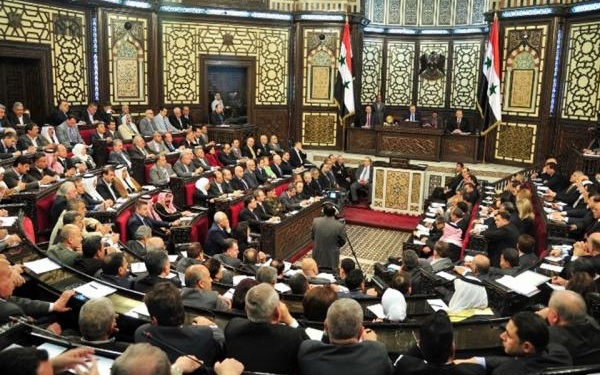Bashar al-Assad has postponed elections for the People’s Assembly, even as his regime continues to deny a single case of Coronavirus in Syria.
Assad issued a decree on Saturday moving the vote from April 13 to May 20.
The 250-member Assembly is a largely ceremonial body, rubber-stamping regime decisions. Nominally, it has two main blocs, the National Progressive Front and Popular Front for Change and Liberation, with the regime proclaiming after the 2012 elections that Syria now has a multi-party system.
Due to coronavirus, Assad has postponed the Syrian parliamentary elections. Candidates will now have until May 20 to purchase their seats. https://t.co/hS2wGNenKT
— Aron Lund (@aronlund) March 14, 2020
On Friday, Ministers approved the closing of schools, universities, and institutes. All cultural, sporting, and scientific events with crowds are suspended. Work hours in the public sector are being reduced 40%, and businesses ordered to operate with the minimum of staff for 15 days.
A Regime Appearance Alongside World Health Organization
Health Minister Nizar Yaziji claimed once more on Saturday that Syria has no confirmed cases of the virus.
Speaking alongside the World Health Organization’s representative for Syria, Yazigi proclaimed that all tests for the illness have been negative. He insisted that two centers in each regime-held province are equipped for quarantine and isolation of any patients.
On Friday, Yazigi compared preparation against Coronavirus to the regime’s mass killings in Syria’s nine-year conflict: “The Syrian Arab Army purified Syria of many germs.”
See also Syria Daily, March 14: Health Minister Compares Coronavirus with Regime’s Mass Killings
Medical staff, aid workers, and activists fear that Coronavirus is already spreading in Syria. They cite the fragmentation of the country’s services, poor conditions in camps for displaced persons, and unrestricted travel from Iran — one of the epicenters of the outbreak — including for Iranian troops and Iranian-backed foreign militias.
Aid workers have also warned that the virus could spread rapidly in the regime’s unhygienic prisons, where tens of thousands of detainees have been tortured to death, executed, or died from poor conditions since 2011.
The World Health Organization representative, Ni’ma Saeed Abid, said 1,200 tests have been given to the central public health lab and that technicians have been trained on detection of the virus.
But the WHO has no plans for measures in northwest Syria, where more than 1 million civilians have been displaced since last April by a Russian-regime offensive.
According to Syrian news agency SANA, Saeed Abid said on Saturday that the regime’s measures were “very important”.
He reassured, amid the medical facilities in opposition-held Syria devastated by Russian-regime bombing, that “80 percent of COVID-19 cases are simple and only 15 percent need a hospital”.

